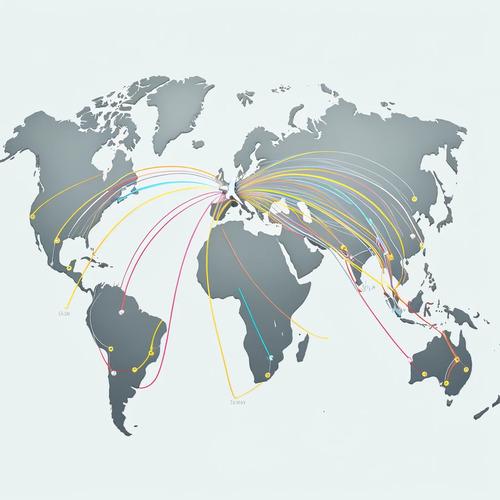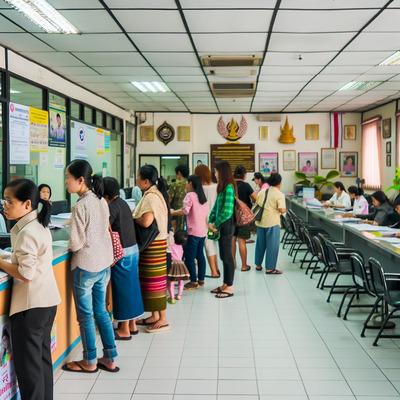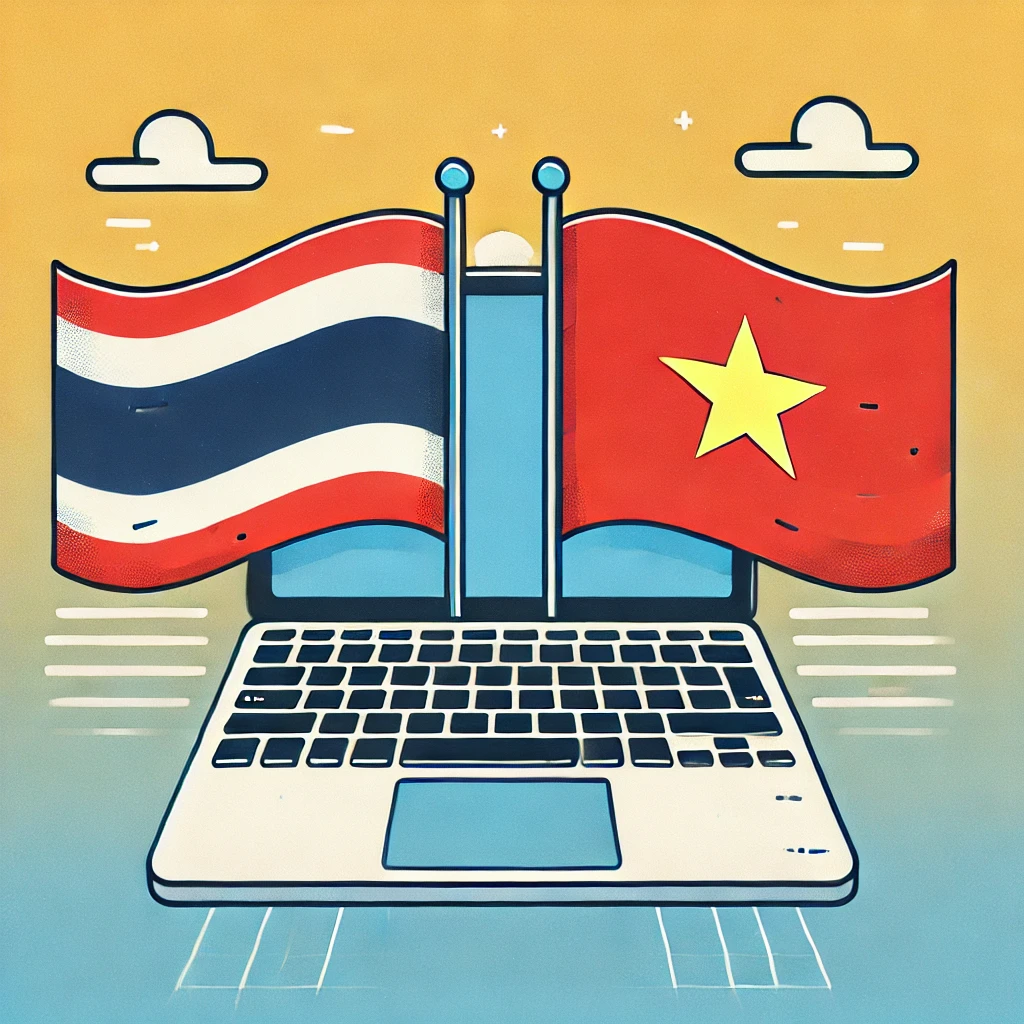Top 4 Challenges Digital Nomads Face in Thailand

A short post on some of the potential issues digital nomads may face in Thailand
So, you've checked out our previous post on the pros of heading to Thailand and you’re all in—flight's booked and bags nearly packed! But before you set off, let’s chat about a few bumps you might hit along the road. Don’t worry, though, they're nothing you can’t handle, especially with a little heads-up.
In this piece, we’ll dive into some of the challenges that might pop up during your digital nomad adventure in Thailand. And guess what? In our next article, we’re going to show you exactly how The W Coworking / Coliving space has got your back. We’re all about making your stay as breezy, fun, and hassle-free as possible. Stay tuned, and let’s make sure your Thai experience is top-notch!
1) Long Distance Flights
Traveling directly from Europe to Thailand can take up to 12 hours, and flights from North America are an even more gruelling experience. Given these lengthy durations, there's not much that can be done to help with this challenge. However, we do recommend a practical approach to make this part of your journey more manageable. Start by choosing your favorite flight comparison website; it's a great tool to help you explore various flight options. Additionally, make sure to book your tickets well in advance to secure the best deals and ensure a smoother trip.

The busiest tourist months in Thailand are generally November to January, commonly referred to as the 'high season.' It's safe to assume that airfares will reflect this increased demand. On the other hand, booking flights for May to July (the low season) might result in lower prices. However, be warned: this time of the year is swelteringly hot.
So yes, traveling to Thailand, and in cases like weddings or funerals, traveling back home can be both expensive and time-consuming. However, we assure you it will be worth the effort.
2) Transition Time to Resume your Remote Work
Let's say you have strong-armed your boss into allowing you to work remotely for 6 months. With this newfound freedom, you’ve decided to head to Thailand, not just to soak up the sun but to immerse yourself in the local culture. You plan to learn the Thai language and train in Muay Thai,

Your boss has agreed to your remote working aspirations, with one important condition: your work performance must not suffer.
Let's start with the ideal scenario: you get off your long-haul flight, are picked up from the airport, and then arrive at your long-term accommodation, which includes office space, high-speed internet, and a network of people in a similar situation.
The reality, on the other hand, may not be as smooth for those who are unprepared.

So, what exactly will make this process bumpy, you might ask? Well, first off, you'll need to find accommodation. The majority of nomads opt for a long-term rental contract. Usually, the process involves booking a hotel for 2-3 weeks and spending that time visiting different buildings and making appointments—a very time-consuming endeavor indeed. Plus, you may not even know where the best area to stay is, which can add to the stress. Once you find a place, the next step is to locate the nearest TrueMove or AIS shop to get fiber optic internet installed. While these providers are top-notch, it still takes 3-5 days for them to arrange a team to come to your building and install the router.
All valuable time lost along with perhaps some uncomfortable conversations with the boss!
3) Navigating the Thai Visa System
First and foremost, let’s emphasize how crucial it is to have a valid visa while in Thailand. You definitely don’t want to face legal issues while enjoying a working holiday. However, navigating the visa process can be both challenging and expensive. You might ponder whether to apply for a visa in your country of origin, use the visa exemption, or qualify for a visa on arrival. Additionally, ensuring you have the correct documents for a border run to a Thai embassy in a neighboring country can be daunting.

The quest for up-to-date information and meeting the exact document requirements can quickly become overwhelming. Whether you're extending a tourist visa, applying for an education visa, or investing in an elite visa, Thailand’s legal system can be incredibly complex for those without prior experience or a legal background.
4) Loneliness
As highlighted in our top 10 reasons to move to Thailand, the Thai people are incredibly welcoming and friendly. However, establishing a social network requires time and a genuine effort to connect with others. Some remote workers—particularly those in IT—may be naturally shy and find it challenging to form new relationships with locals and fellow expatriates. Loneliness is a common issue among digital nomads, regardless of their location.

This can be exacerbated in Thailand due to the language barrier, making it even more important to actively engage and immerse oneself in the community. Especially those that are coming solo for a period of less than 3 months, may find themselves feeling a bit lonely at times.
Ok so all that might seem a bit intimidating. Tune in to our next post to discover a dream come true for digital nomads coming to Thailand.


